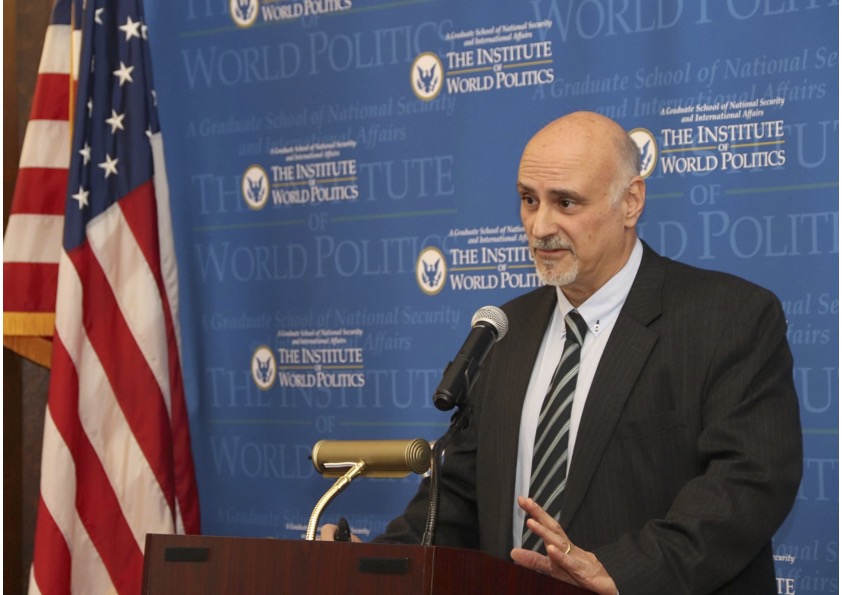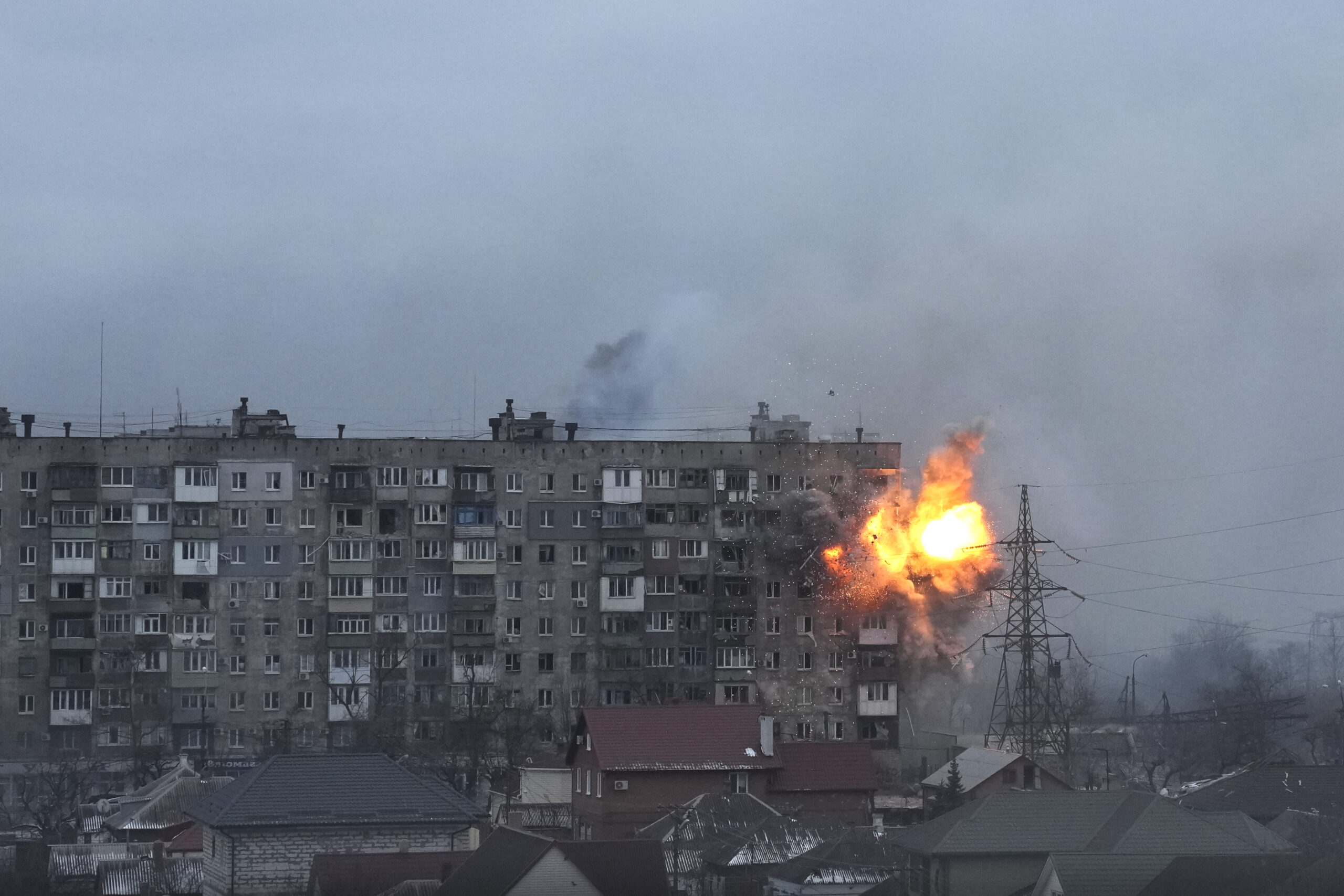EXCLUSIVE: NSN speaks with former CIA expert Nicholas Eftimiades on Beijing’s sights on the Moon and NASA’s race back
NSN discusses China’s intelligence operations and motives in space exploration with author and educator Nicholas Eftimiades, an American government official who served in the CIA, DIA, and US Department of State, best known for his work on China and national security space issues.
NSN: Nicholas, thank you for being with us today.
Nicholas Eftimiades: Thank you for having me.
NSN: Can you tell us a bit about your upcoming book “Chinese Intelligence: Operations and Tactics,” and how it came about?
Nicholas Eftimiades: Absolutely. My book will be coming out in January 2024 and delves into China’s current espionage operations. Lots of people tend to cover the history of Chinese Intelligence, what the agencies were like and information that was put out into the public domain many years ago. I, however, take a different approach and instead hone in on the types of operations the Chinese government are conducting, and how they are carrying out espionage tradecraft on the ground.
NSN: Is there anything you can reveal about your new book?
Nicholas Eftimiades: I have worked on 775 cases in my database. Almost 500 show clear parallels in the motivations behind the person conducting the espionage activity. At the end of day, espionage is all a personal affair. It essentially comes down to individuals doing bad things for their own reasons and motives. What this shows is a large expanse in the motivations that are typically done for espionage.
NSN: We are seeing more and more cases of the PRC planting spies in our educational institutions and around the world. Are you seeing any different tactics?
Nicholas Eftimiades: Yes. The Ministry of State Security has a term for this, they call it Chén dǐ de yú, meaning “bottom sinking fish.” This is where China plants individuals for long term exploitation in a foreign country, so as ministry of state security assets. There are a variety of ways in which China does this. The UK alone has 10,000 people that have been targeted by the Chinese intelligence services on LinkedIn. Recruitment tactics can vary, and China has been known to employ a range of methods. Traditional approaches include identifying individuals susceptible to coercion, blackmail, or who have access to valuable information. Chinese spies have also been known to target individuals dissatisfied with their current situation, offering financial incentives or support for businesses.
Industries such as technology and defence are key targets due to the sensitive nature of their work. China, with its focus on technological advancement, often seeks information related to cutting-edge research and development.
There have been reported cases of individuals approached by Chinese intelligence operatives in countries through academic collaborations or joint ventures, where scientists or researchers may inadvertently share classified information. Chinese nationals abroad may also be coerced into cooperating with intelligence agencies for the sake of their families back home. Often, this coercion can be subtle.
When you look for that globally, you can see pockets of espionage activity, industrialised nations, covert influence operations globally.
NSN: What kind of clandestine influence operations have you been seeing more recently?
Nicholas Eftimiades: We are seeing a lot of cases that are comparable to Christine Lee. The Christine Lee case was the first time that MI5 issued a warning quite so publicly. Talking to them at the time, they were overwhelmed with what to do and blindsided knowledge wise.
We are seeing influence operations in the Chinese Diaspora overseas. There is a tremendous effort ongoing where China is attempting to influence ethnic Chinese individuals as a tool to promote China’s interests and increase its global influence.
In the US, the FBI has put in an assertive effort into exposing and going after these types of coercion cases and influence operations. The number of arrests has gone up tremendously, not because there has been a sudden surge in espionage cases, this is something that the Chinese government has always been doing. People just haven’t cared up until now, however confronting this threat has now become one of the FBI’s top counterintelligence priorities.
NSN: Can you give us an overview of Chinese espionage tactics that could be deployed in space? What do you think China’s moon ambitions and motives are?
Nicholas Eftimiades: So, let’s start with China and space and what we really mean by espionage. There are technical components of this, and there are HUMINT components. Out of the 775 espionage cases I have documented, 130 or so are aerospace technology, one component of this is China’s theft of aerospace technology. Their advancement in space is due in part to their advanced military technologies and capabilities but is also largely due to the theft of our technologies.
The race to space as it is so called is different to what we have seen decades ago. It wasn’t actually the space community; it was the business and the banking communities that came to the realisation that there are a lot more people rising to the middle class of the world, hundreds of millions. And those people are going to want to communicate, but they live in areas that do not necessarily allow them to do that. The banking community realises it, but the space community says it won’t happen.
So, it took someone like Elon Musk, who created Starlink to break that paradigm. The technology was reduced so that you could put a small satellite up, and it would cover most of the mission, 80% of a mission of a large satellite.
Once you start knocking costs down to 1/10th of what they were, the business cases, and missions for what you can do in space change dramatically.
So, here’s where the race comes. There’s a lot of the Earth with a wealthy middle class that is just not covered for communications. So, Elon Musk realises this, acts first, and puts out Starlink. Tiny satellites, but by the thousands.
As this is all happening, China is still left well behind attempting to catch up as Elon Musk advances. The significance lies not only in addressing the needs of the rising middle class, and improving wealth distribution through space communication, but also in the technological advancements enabling the deployment of assets in low Earth orbit, with direct implications for missile defence strategies.
Elevating communications to lower Earth orbit is crucial for countering China’s hypersonic capabilities. This shift makes communications faster and more efficient, eliminating the need for expensive terrestrial infrastructure and paving the way for a more streamlined approach using small satellites.
NSN: What do you think are the national security implications of small satellites?
Nicholas Eftimiades: As we transition to deploying tens of thousands of small satellites in space, the necessity of defending them has become paramount.
These satellites constitute critical communications infrastructure. You have your defence resting on them, your military resting on them, and your economy resting on them. Thus, safeguarding these assets becomes imperative. The question then arises: how do you protect thousands of satellites?
In the past, if you lost a one-billion-dollar satellite, it used to be a big deal. However, if you lose a one-million-dollar satellite and you have 2,000 other ones in the same orbit, the nature of the threat shifts to cyber. It is not so much a kinetic threat anymore, it could be, but not so much, because China can’t knock out enough satellites that is going to make any real difference.
The options are limited, so cyber becomes the primary threat.
NSN: Have you seen any recent cases of hacking?
Nicholas Eftimiades: We are seeing many public cases of hacking in general from China, but there is a problem – presently, in the US only publicly traded companies are required to report cyber-attacks to the federal government. Many countries globally do not mandate companies to disclose detailed information about cyber hacks into their systems and satellite networks. There is a lack of public disclosure, often due to insurance purposes, and concern about public reputation. As a result, the true extent of these cyber threats remains unknown to the government and the public. While some companies may share information with government agencies in times of crisis, such communications are not public, so we don’t know the extent of the threat.
NSN: Do you think regulations will change?
Nicholas Eftimiades: The notion of a ‘Pearl Harbour in space’ is what people often talk about. The question remains: Will it take an event of that magnitude for American Congress to recognise the urgency of the situation? Currently, there is a consensus that this situation is a potential catastrophe waiting to happen. The Department of Homeland Security is taking steps to address this concern by proposing requirements for the industry.
Industry is fighting back against some of that, saying that these regulations drive increased costs and they don’t want satellites to be considered critical infrastructure because of the financial burden it imposes on satellite development and defence.
So, when you look at this globally, the implications become huge. How does the U.S. work with its allies when the security standards are different?
Just for things like cyber, there’s an additional layer of complexity involving the supply chain. If half of us are sourcing our parts from China, even if it’s a commercial venture, how much do you trust that?
If a fault or malicious coding is put into it, then it becomes a substantial problem, especially given the expensive and time-consuming nature of the verification and validation process. So, these are all the challenges we are facing that have emerged only in the past few years, all of which demand careful consideration.
NSN: Do we anticipate China beating the US back to the Moon? Do you think the West is falling behind?
Nicholas Eftimiades: I do; I’ve actually written about this in a paper for the Atlantic Council.
Bureaucracy, especially within the government, sector doesn’t move forward quick enough to be able to do those sorts of things. It’s why this whole satellite revolution was catalysed by the commercial side not the government side.
The reason why this becomes important is we are moving at the same pace; technology and its commercialisation are moving at a far greater pace and China is in a better position to take advantage of this than we are.
Why?
Because of our bureaucratic systems. It used to be that the best technology created in the world was created by the US, especially in areas like missile defence.
Innovations like the camera in your phone and the computer mouse originated from our missile defence programs. But, if you look now, that stuff is done commercially.
It is no longer a domain that the US has for that type of technology, and others who don’t have the burden of legacy systems, and who have invested trillions into technologies are better positioned to flip technology that the US has built into something that is 1/10th of the size.
We are just not built for it and acquisition programmes aren’t accommodating for it.
For instance, acquiring and integrating software can take us months, whereas Silicon Valley can achieve this in a matter of weeks, including consolidating updates and versions.
So, within three weeks or so, you have a finished product of excellent software, whereas we have only got this on a piece of paper, and that’s the problem. We are like that; others are not. So, you are going to see a shift in the balance of acquisition programmes and how fast others move up. China has got its prestige on the line in space as well, so it puts a lot of emphasis into that area.
NSN: Can you recall any of China’s recent rapid advances / successes?
Nicholas Eftimiades: Yes, if you consider that China has been in space for only two decades and they have already covered the far side of the moon, objects fell to the far side of the moon, and so now there is a question of what China puts on the far side of the moon.
More objects came down from the far side of the moon than should have, so there are some questions to that.
In the realm of space activities, particularly in the Cislunar space between the US and China, China has launched reconnaissance satellites, showcasing their growing capabilities. China has also implemented space-safe communications and established the Space Information Corridor under the Belt and Road Initiative. Through this initiative, China sells space services to over 100 countries within the Belt and Road framework as well as to Chinese companies globally. This strategy not only enhances China’s space capabilities, but it also offsets costs, making these services functional.
However, concerns have been raised about data privacy as all the information globally from participating countries is passing though Chinese communications.
The Chinese government says it is not using any of this information, but multiple cases have proven that this is not the case, that they are taking the data, so they are becoming a global collector unparalleled in our times.
NSN: Many sources are suggesting that the next two years will be critical in the competition between the US and China. What developments do you anticipate in this rivalry?
Nicholas Eftimiades: I think China’s economy is shifting a bit, their social infrastructure is questionable because they have taken a bit of a downturn in their economy, recovery from Covid hasn’t been that good. You have a lot of China’s youth leaving or trying to get out, so there is trouble within the Chinese system.
We have seen advancements in space in different areas, the level in escalating global tensions between the US and China is driving increased military investments, fostering a climate of heightened defences and counter-defences.
I think that the tension level in space and through space is ratcheting up considerably.
NSN: Thank you, Nicholas, for sharing your insights into China’s space exploration efforts. We look forward to witnessing the exciting developments in the years to come.


































































































































































































































































































